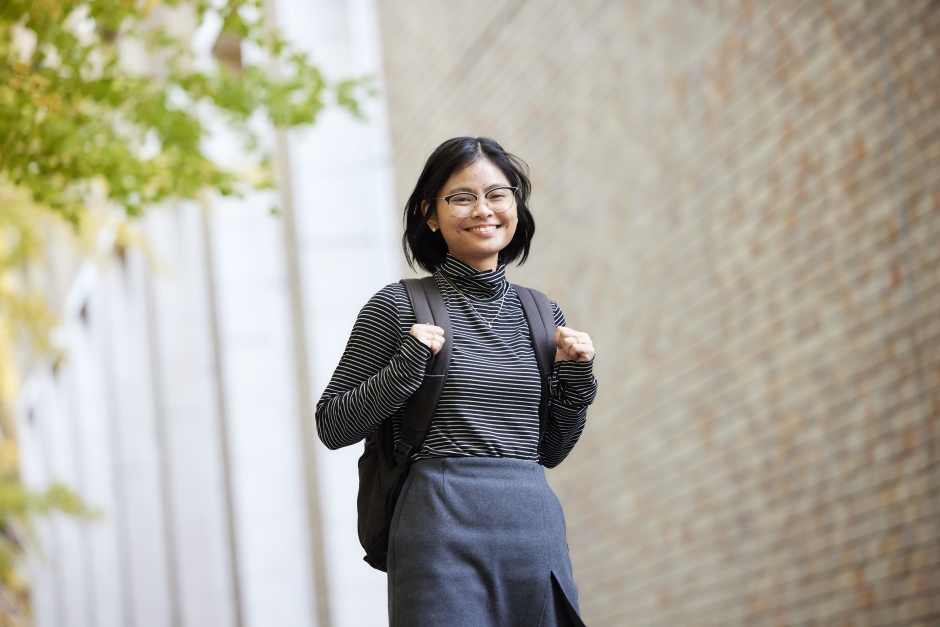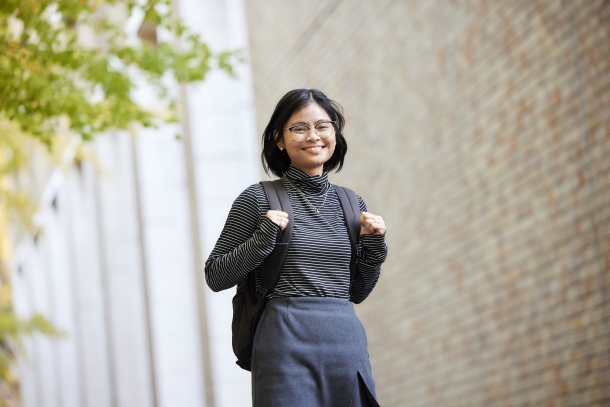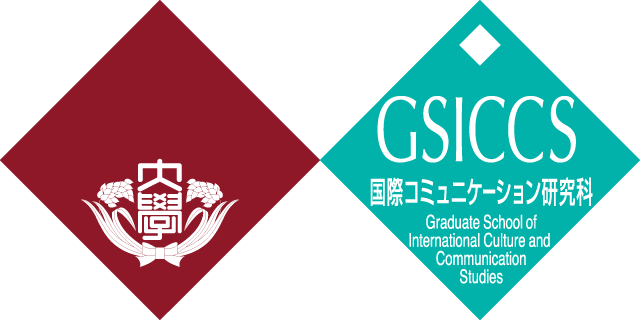- News
- BORLAZA, Catherine Regina Hanopol
BORLAZA, Catherine Regina Hanopol

- Posted
- Mon, 18 Dec 2023

- Program:Master’s Program
- Enrollment in:September 2022
- Study Plan:Culture and Communication
- Directed Research: Visual Culture
Message
There were many things that led me to pursue my current research on anime in GSICCS, but what appears to ground the questions and issues I have always been preoccupied with is this curiosity in what texts mean and how texts and their supposed meaning arise from specific contexts. In particular, I have always tried to think through texts in which their meaning are caught between but also created by the division and tension between the “private”/“public,” “individual”/“social,” and “personal”/“political.”
I majored in creative writing in high school and wrote a poetics essay as a requirement for graduation. In that essay, I examined the confessional mode used by American female poets, specifically how “private” matters associated with the female body, family relationships, domestic spaces, and the self are laid bare before the public—a break in the impersonalized poetic tradition and historical context of the U.S. in the 1950s-60s. This interest in women’s writing carried over into my research as an undergraduate student studying comparative literature with a concentration on Asian literature. In my thesis, I explored postwar retellings of the folkloric figure of the yamauba by Japanese female writers, arguing that their reiterations of the yamauba are enmeshed in the changing material and discursive contexts of women in postwar Japan. This insistence on a political reading of texts informs how I am approaching anime in my current research.
Like all kinds of texts of popular culture, anime is usually taken as an object of personal entertainment, enjoyment, or leisure. Moreover, its primary consumers—otaku—are typically cast to be socially withdrawn, peculiar, and perverse. These two assumptions about anime and otaku, which usually impede further scholarly inquiry into these two topics, are what I attempt to engage with in examining the anime series Violet Evergarden. Many scholars have demonstrated how anime is a productive site to examine social values that are reinforced, contested, or negotiated, and I similarly think that Violet Evergarden is not just simply a series to be consumed for entertainment, but one that actually enacts and resolves a political fantasy. The series, which is steeped in otaku tropes and obsessions (such as the subject of war, beautiful, fighting girls as characters, and questions of what it means to be human), posits a utopian vision on social relationships where it is possible to authentically express one’s emotions and where bonding with another is valorized to be a healing and transformative encounter. This view on sociality expressed by Violet Evergarden, in my mind, speaks beyond the prevalent discourses on the antisocial nature of otaku, which led me to the question what such narratives on suffering and sociality packaged and consumed as a popular global media mean today at present.
